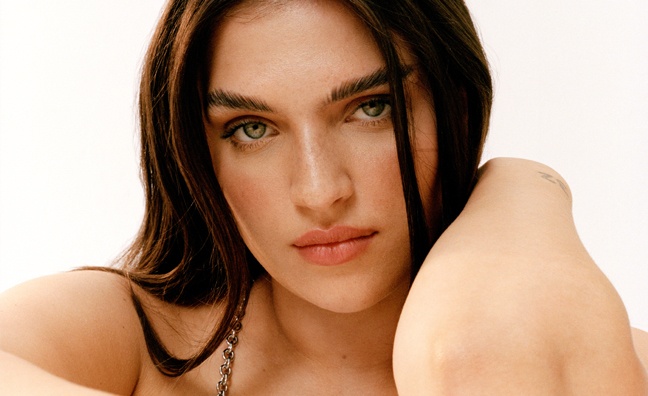Last year, Tap Music, Fifteen 04 management & Parlophone joined forces to guide UK hopeful Sam Ryder to the UK's best Eurovision result since 1998. It was a game-changer. In this special digital cover interview, Music Week meets 2023's UK candidate Mae Muller, alongside Modest! Management's Will Bloomfield & Lucy Tallant, Tap Music's Ben Mawson & Ed Millett, plus EMI co-president Jo Charrington to find out what they have in store...
WORDS: JAMES HANLEY
Want to feel old? This year’s UK Eurovision hope Mae Muller wasn’t even born until three months after the United Kingdom last triumphed in the contest. So how fitting it would be if an artist who entered the world in 1997 ended its 26-year wait for a sixth crown.
“It's written in the stars,” laughs Muller of the coincidence. “I feel like that's definitely a good omen. I'm going to take it as a good sign.”
The signs have all been positive for the Capitol/EMI-signed 25-year-old since her unveiling last week as the UK’s 2023 Eurovision Song Contest participant. When the prospect of representing her country – on home turf, no less – was raised by her manager Will Bloomfield of Modest! Management, Muller did not need to think twice.
“I was recording in a studio in Shepherd’s Bush,” she tells Music Week, “and one of my managers called me out of the blue and said, ‘I'm in the area, do you want to go and have a cup of tea?’ I thought, ‘Hmm, that’s a bit suspicious,' but I went along and he was there with his laptop and said, ‘I've got something to put on the table… how do you feel about Eurovision?’
“You go through all the emotions, but my main one was, ‘If it’s on the table, I would love to do it.’ He was like, ‘I need an answer now. You're 100% in or you're not.’ And I said, ‘I'm 100% in, let's go for it.’”
Muller will perform I Wrote A Song at the ceremony at Liverpool’s M&S Bank Arena on Saturday, May 13. Co-written with ace hitmakers Karen Poole and Lewis Thompson, the electropop earworm is on course to go straight into the Top 40 in this week’s UK singles chart. In a quirk of fate, Muller reveals the track came together just a couple of days prior to her summit with Bloomfield.
“The second that Will said ‘Eurovision’, a lightbulb went off in my head and I thought, ‘I feel like I've just written a Eurovision song, this is really weird,'” she recalls. “Not to toot my own horn, but I think it's a great pop song. You can dance to it and it's also a heartbreak anthem, but it's more than that: it's about lifting yourself back up, empowering yourself, believing in your self worth and working through negative emotions to come out the other side. And I think that aligns with Eurovision. Despite everything going on in the world, everyone is coming together for a night and celebrating music and each other. And I'm hoping this song can be a part of that.”
The UK is staging the competition on behalf of Ukraine, whose entrant Kalush Orchestra took the 2022 honours with the song Stefania. Ukraine is unable to take on hosting duties in 2023 due to the ongoing conflict following Russia’s invasion. It will mark the first time the contest has been held in England since 1998 in Birmingham.
“To host on behalf of Ukraine makes it that much more special, and it's important that they feel just as celebrated as us,” says Muller. “[Eurovision being in the UK] is a pressure, but it's good pressure, especially with it being in such an iconic music city as Liverpool. So we're all excited.”
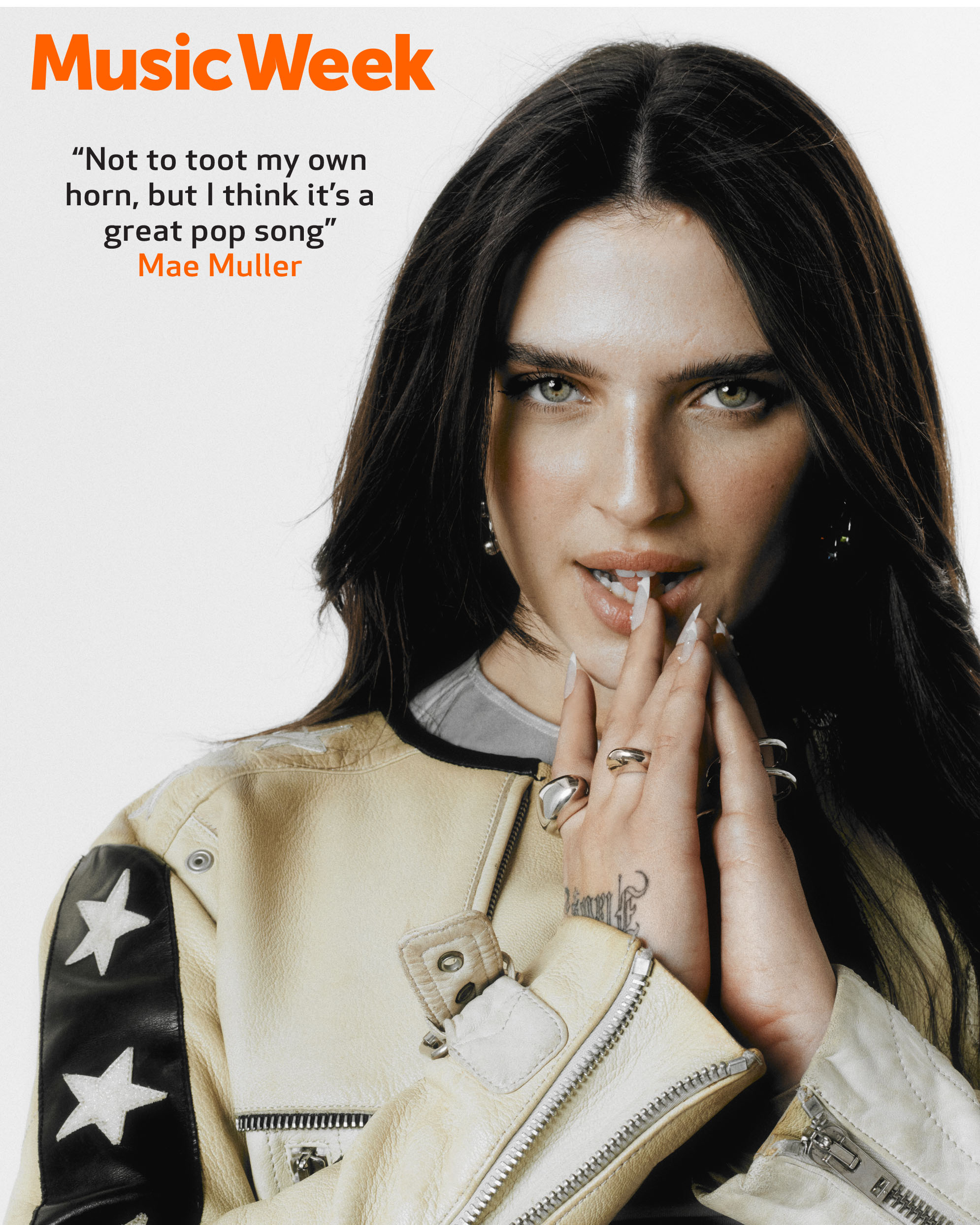
The public clearly agrees – gobbling up all 6,000 tickets for the 2023 event in 36 minutes when they went on sale on March 7. Around 64,000 tickets for rehearsals and semi-finals were also sold out within an hour. The appetite has not been diminished by the UK’s Eurovision fortunes in the near quarter-century since Katrina And The Waves reigned supreme in Dublin that night in May 1997, which have mostly ranged from disappointment to outright humiliation.
But after the ‘nul points’ calamity of 2021, Tap Music – the powerhouse management firm home to artists such as Lana Del Rey, Leigh-Anne Pinnock, Ellie Goulding and Dermot Kennedy – entered the fray, coming up with the novel idea of finding someone who might actually win. That chosen one turned out to be Sam Ryder, who went a long way to restoring Royaume-Uni’s pride on the European stage with a hugely creditable second place finish – its best performance since 1998.
With 161 million people tuning in to last year’s Eurovision coverage globally, the spotlight was the perfect launchpad for Ryder to become a genuine mainstream star, even closing the 2023 BRIT Awards alongside David Guetta and Ella Henderson. The TikTok sensation’s Eurovision song Space Man (479,758 sales, OCC) went on to peak at No.2 on the UK singles chart while parent album, There’s Nothing But Space, Man! (61,320 sales) rocketed to the summit. When Tap Music returned to oversee proceedings for 2023, they had a tried and tested template to follow.
“In a world where music marketing is largely TikTok-based, this is the biggest possible live music opportunity and a platform that can genuinely make a huge difference in one night – albeit with a lot of work before it,” says Ben Mawson, who masterminded the 2022 campaign alongside his Tap co-founder Ed Millett. “There's a ‘Eurovision army’ who aren't necessarily your ordinary music fans, there is overlap obviously, but it genuinely translates into chart success and huge visibility and profile – especially if you have the personality to represent well. A large part of it is about a charm offensive before the big performance.”
With Muller, Team Eurovision 2023 are building from a position of strength: the North London singer-songwriter already has close to seven million monthly Spotify listeners and an international hit under her belt via 2021’s Neiked and Polo G collaboration Better Days (300,466 sales), which charted in the Top 40 on both sides of the Atlantic. She also has upwards of 558,000 followers and 4.7m likes on TikTok.
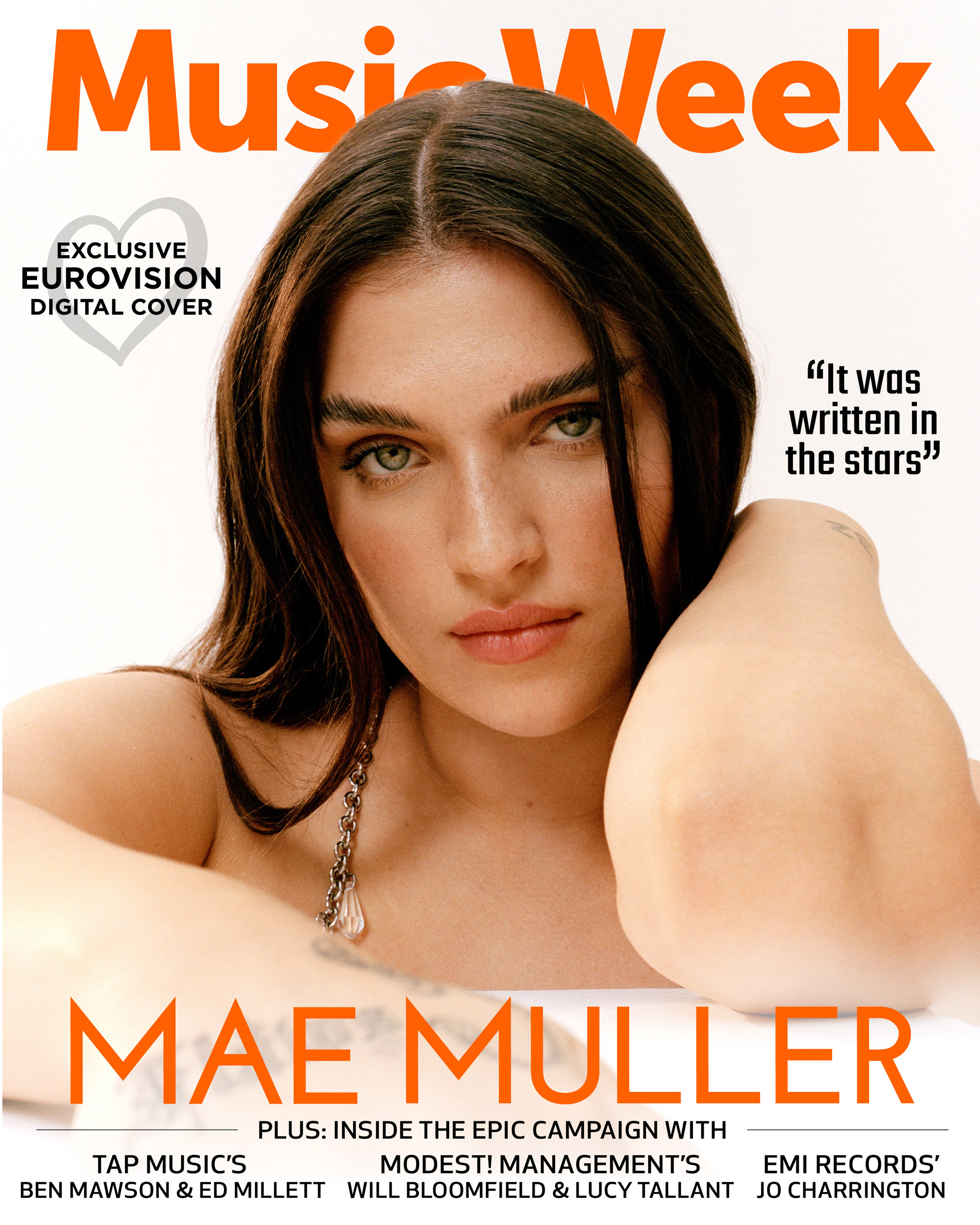
Here, in the first of many interviews in this digital cover story, Mawson and Millett look back with pride on last year’s turnaround and consider how they can make an even bigger splash in 2023…
How do you reflect on our efforts as a nation last year?
Ben Mawson: “We were delighted. We were increasingly hopeful in the build-up because we felt we'd done such a good job, but it comes down to the performance on the night. We'd been told for years that the votes were political and that's why the UK doesn't get any points, but we had the best night and were very happy. We had a little bit of back and forth over whether we were going to do it again. But when it turned out it was going to be on UK soil, we thought we'd to do it one more time and come at it a bit differently, with a different sort of music and artist.”
Ed Millett: “What's also been good is to see Sam's career continue to grow afterwards, and how he's taken advantage of the platform that it gave him. It’s been validating that it can truly do that.”
BM: “We hope this is a platform for Mae to go to global superstardom, which is what she deserves. Ed went to LIPA in Liverpool and I went to school there, so we're both happy and excited it's in Liverpool.”
EM: ”From a campaigning perspective, hopefully everybody's going to get more behind Mae because [being in the UK] it's not just a night on the TV. That's more pressure, but at the same time it's more focused on hopefully a positive outcome.”
Do you feel like you silenced a lot of naysayers within the business last year?
BM: “We had lots of texts afterwards going, ‘Wow, well done.’ But I think there are still naysayers. The fact it’s a competition is also a bit scary for some artists, in that it’s out of their control, as opposed to a normal performance. But Armenia proved that coming top doesn’t matter – that song [Rosa Linn’s Snap] was the biggest [international] hit off the back of coming 20th. So there is still negativity, but hopefully it’s been overcome to a large extent.”
Last year, Sam Ryder told MW that artists would soon be beating down the door to be Eurovision contestant. Has that been the case?
EM: “It still wasn't easy, but it felt like there were more people open to it.”
BM: “The process is still very hard, because some artists only want to write their own songs. They may be good songs, but they’re not right for Eurovision. You can't just have a good song and not be the right personality. It’s a bit of a jigsaw really and every year, you've got to get that formula right. But it was definitely easier this year in terms of reception. People didn't shut the door straight away, which happened the first time around.”
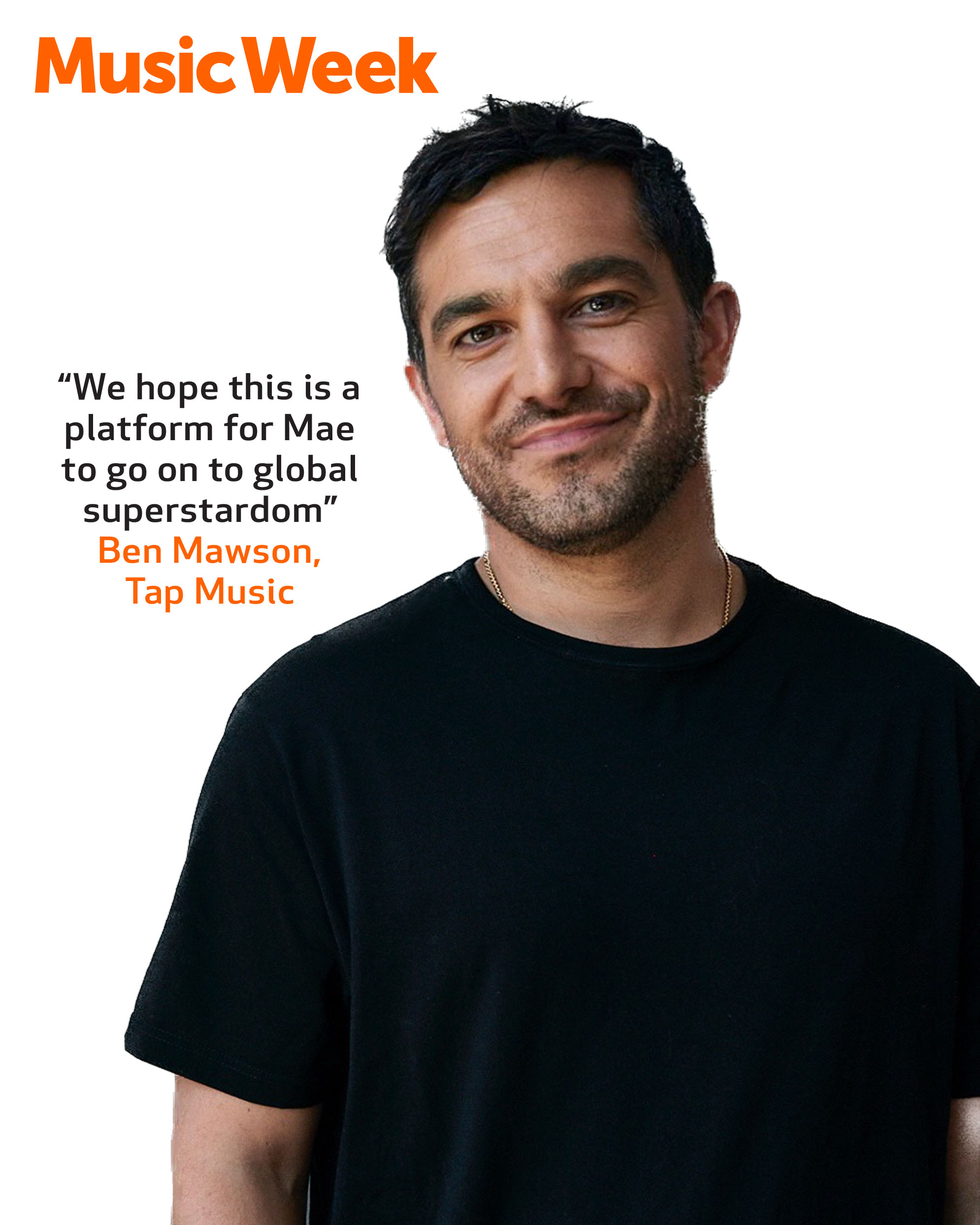
How did the selection process work this time?
BM: “We were very clear that you need, number one, a very good song. Two, an artist who can perform live. And three, the right personality to embrace the opportunity. We wanted to tick all those boxes and it's very hard to get all of them, so you end up having quite a small pool to choose from. That's not a negative; it automatically focuses you on the right kind of people. Ideally, we didn't want to have a male – that was important to us this year – then it's, ‘Do they have the song?’ Mae was on our shortlist of the top four or five people. And when [I Wrote A Song] came in, it felt like it was a really good option.”
EM: “We went from not having a person to suddenly being all sold on her and the song. Part of the whole process this time around was wanting to have something that had tempo and lent itself to a performance with a dance routine, etc. But you can't be hellbent on that, because when you look back at Eurovision history as a guide, there are so many types of artists and performances that have won, so you can't let that totally dictate what you do. But there was a conscious effort to find something more uptempo.”
You touched upon it earlier, but to what extent is politics a factor in Eurovision?
BM: “I mean, France and Germany gave us 12 points last year and Australia gave us none, so that was a bit odd. The French giving any points at all to the British was a very rare event! But the ironic thing is that politics – or the state of the world and the awful war – did play a part in the result. Other than that, there are certain countries that tend to be loyal to each other, so I think it does play a factor. But to the Eurovision fans, it's all about the performance, the song, the build-up and the interaction, and then the juries are people from the music business in those countries. We can't deny there are examples, but that's not going to result in nul points.”
Finally, what are the chances of you guys returning to do this for a third time next year?
BM: “Well, we haven't been invited yet. It is to be determined!”
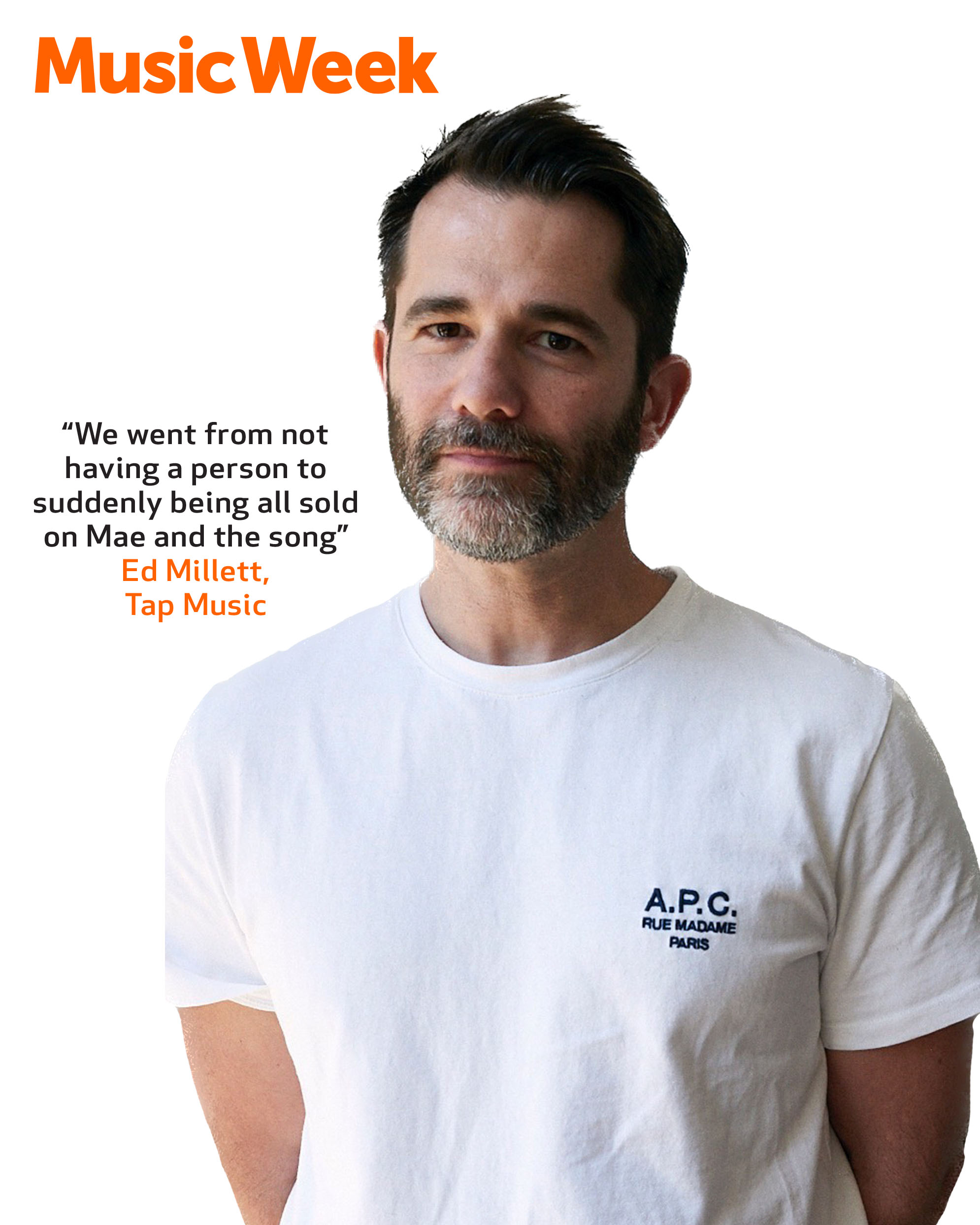
It was serendipitous that just a day or two before Eurovision came calling, Muller had unwittingly co-written a song perfect for the occasion. Indeed, Modest! Management’s Will Bloomfield and Lucy Tallant could hardly believe their luck.
“We all went, ‘Holy shit, this is the Eurovision song,’” recalls Bloomfield about hearing I Wrote A Song for the first time, but that wasn’t the only reason it fit the bill.
“It was the fact that it was definitely a Mae Muller record,” adds Tallant. “It has her sass and confidence lyrically, but it also felt very current, upbeat and fun.”
Here, the management duo lift the lid on their Eurovision strategy – and where it fits into Muller’s overall campaign…
What persuaded you to put Mae forward for Eurovision?
Will Bloomfield: “It's the biggest television music show in the world. It's an incredible platform with the joy of music at its core. It's a no-brainer, right?”
Lucy Tallant: “Anyone who has met Mae will tell you she is such a hardworking and infectious human. When something like Eurovision comes about, she absolutely fits the bill of being full of energy, fun and such a positive role model for young women. She's an incredible performer.”
Was there any scepticism about it, or did that go out of the window on the back of Sam Ryder’s breakthrough?
WB: “Last year and the year Måneskin won definitely had an enormous impact. The abundant talent and joy that Sam Ryder bought to that competition was infectious. I think [Eurovision] had been moving towards a sea change, but the job that Tap and Sam delivered is unquestionable.”
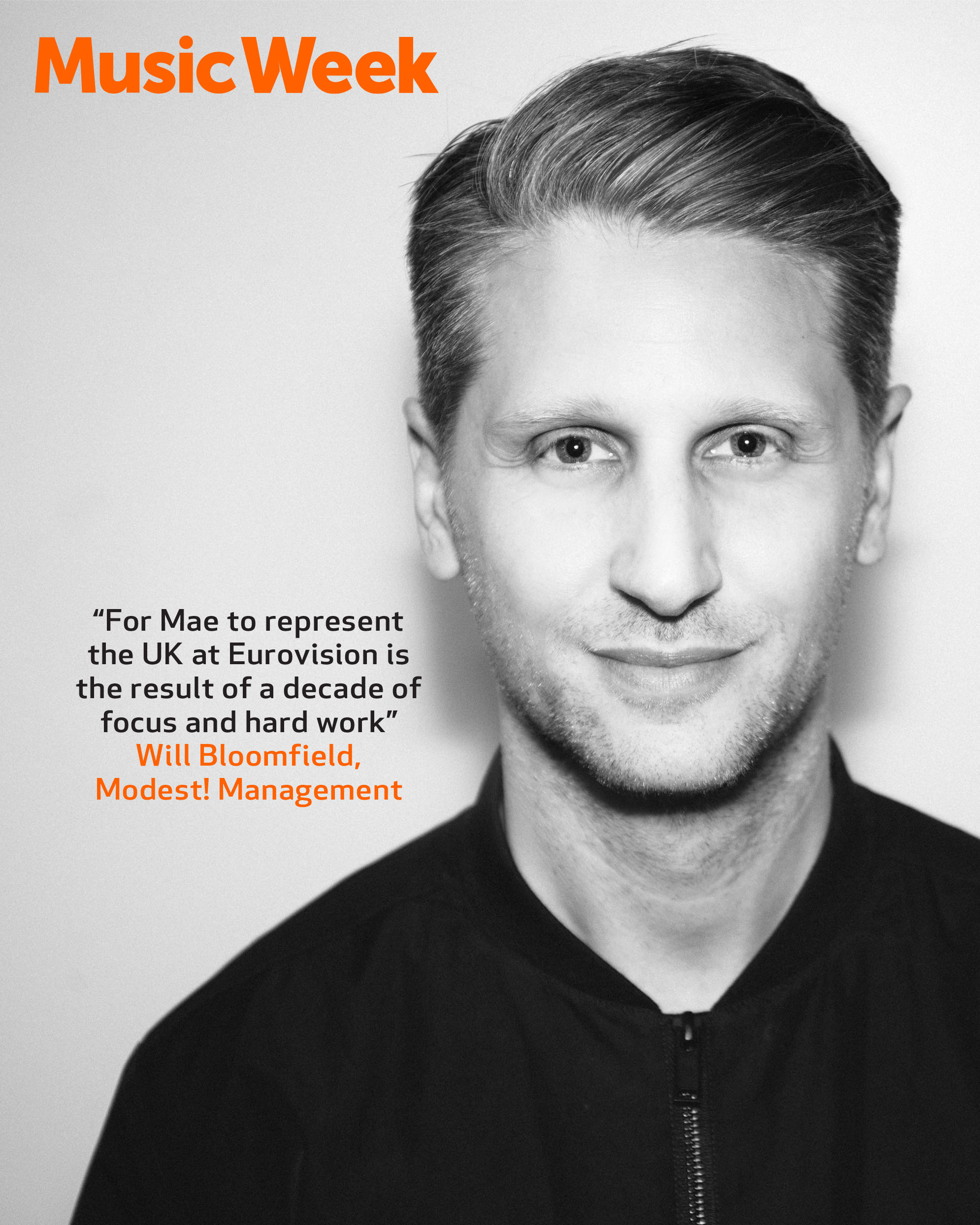
Sam sang at Eurovision last May and was closing the BRITs just nine months later, how big an inspiration is his ascent?
WB: “Huge. It shows the power of the platform and that when you do it right, you can connect with new fans. The proof is in the pudding.”
What do you think Mae will bring to the competition as a whole?
LT: “I think she will be a fantastic role mode for young people, especially young women.”
WB: “It's great to have a female back in the competition for the UK after three males. That's very important. She's abundantly talented: you're seeing a songwriter, a performer, a vocalist and someone who cares deeply about spreading the joy of music.”
How will the contest factor into your wider plans for Mae?
LT: “We already had a plan for this year: the album is done, a tour was already routed, so Eurovision is an extremely exciting opportunity to add a stepping stone. We absolutely have those bits ready to go afterwards. We have singles ready to roll. Mae is a career artist and we see her moving onwards and getting bigger and bigger as the years go on.”
WB: “Many people have this notion that being a pop star is somehow this magical, immediate overnight success, or a product of manufacture. But what is so authentic and therefore so likeable about Mae is that her current success, and the position that she's put herself in to be able to represent the UK at Eurovision, is the result of a decade of focus and hard work.”
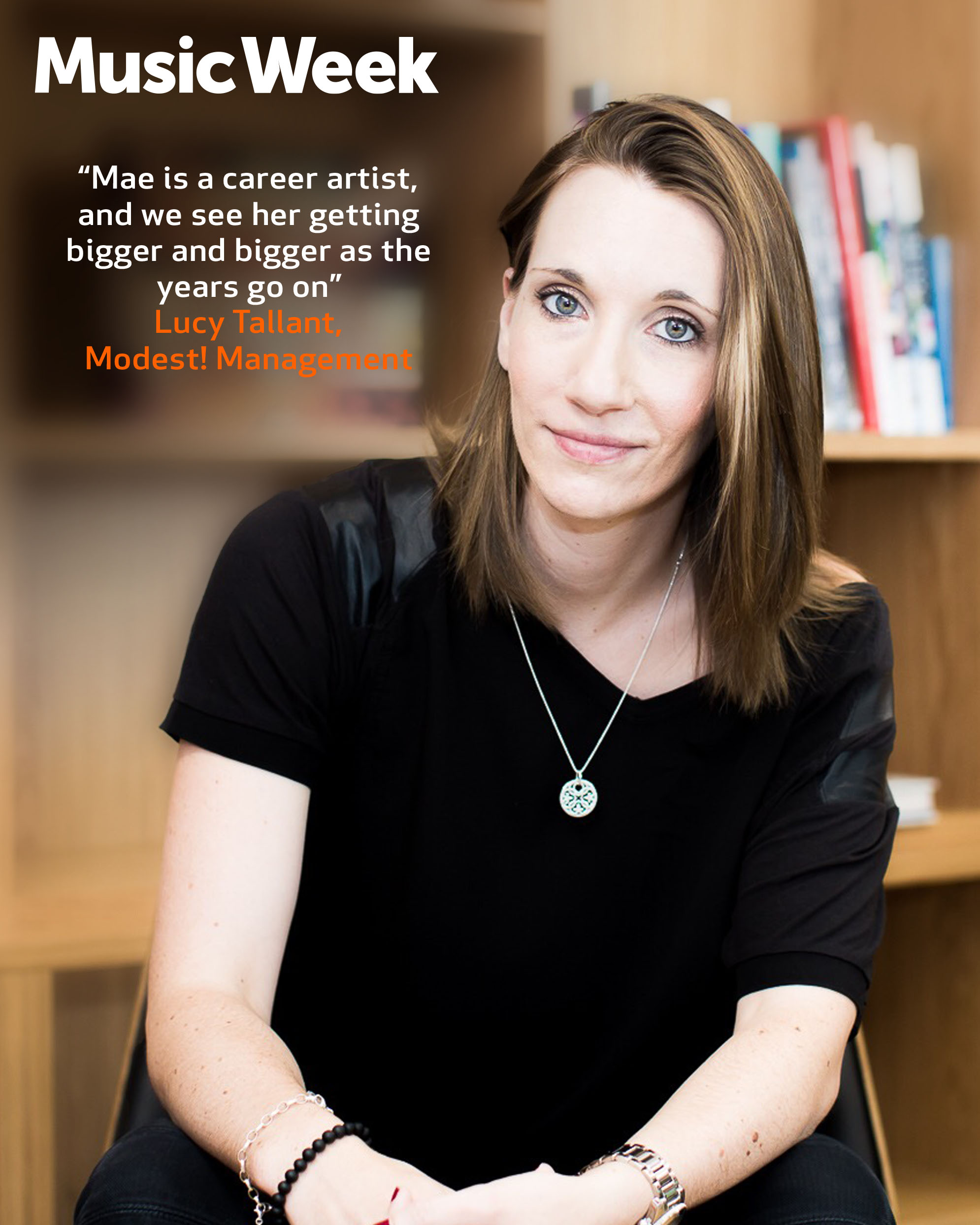
For EMI, Muller is also a long-term concern. Signing to the label in 2018, she released her debut solo project Chapter 1 the following year and supported Modest! stablemates Little Mix on their LM5 arena tour. While the pandemic stilted her progress somewhat, things are very much back on an upward curve. EMI co-president Jo Charrington tells us more…
At a time when breakthroughs are hard to come by, how crucial can Eurovision be for rising artists – particularly female acts?
Jo Charrington: “It's potentially a game-changer for Mae. It's a global platform and that is a dream for an artist, management and label. The fact that it is in the UK this year is probably the biggest upside for her to get recognition in her home market and hopefully become a household name. The market is more fragmented than ever, so we have to be as open as possible to new opportunities. At EMI, we have three female artists in the Top 40: Mae Stephens, Mae Muller and Caity Baser. We discovered Mae Stephens and Caity Baser on TikTok and maybe that's a platform we've needed for new female artists to be able to come through and shine more easily than before. We're going to really put our foot on the pedal with that.”
Mae Muller also has a strong TikTok presence – how important will that be to the campaign?
JC: “TikTok has been super-supportive. Mae was signed before TikTok was a thing and it's a platform that she's really had to get to know. A lot of the new artists that we sign now are completely native to TikTok, but she's massively leaned in.”
What other groundwork has EMI laid to help Mae seize the moment?
JC:“Well, this has only come together in the last couple of months. Initially, it was just about making sure we had done the best with the record and then it was straight into the video. We literally had a two-week turnaround and it was a minor miracle that we pulled it off. Now, the real work starts. There are lots of Eurovision commitments in terms of launch parties in various territories and we're getting into the nitty gritty. It was all about getting the basics right to make sure we were ready to make a big noise and we've definitely done that, because the single is charting. Sam Ryder did a brilliant job, but he didn't actually chart [with Space Man] until the week or so before the Eurovision, so hopefully we're already ahead.”
How did Måneskin's success since their 2021 win change people's perceptions of Eurovision?
JC:“They woke everybody up. Things go in and out of fashion, and the powers that be here recognised that by getting in great people to elevate what the UK was doing in Eurovision. And respect to them for that, because what happened to Sam is a reflection on doing something proactive. We're going to make sure that we continue that progress because it's brilliant for artists. It's fun, and we all need fun in our lives.”
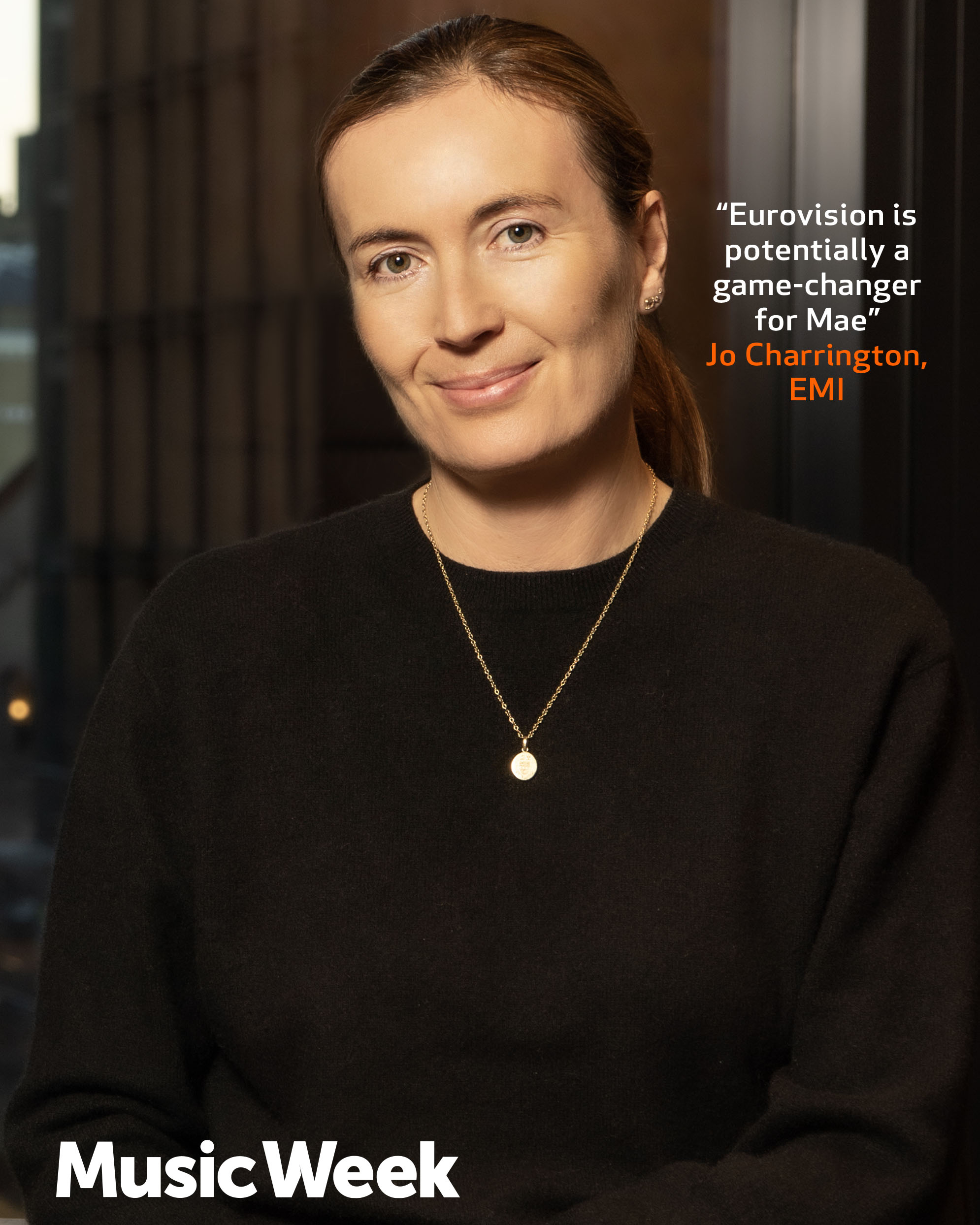
What makes Mae special as an artist?
JC:“Artists have got to have great songs. They've got to be talented. They've got to work hard, but they've also got to be likeable and Mae is really, really likeable. There's a big bit of Mae that's quite ‘girl next door’, and I think that's important. I remember [Modest! director] Richard Griffiths saying, ‘We just have to get Mae in front of people because they will love her.’ And now we've got the biggest platform we could have asked for.”
Under strict orders to keep schtum about her Eurovision participation for the past couple of months, Muller – who starred in Mika’s Grace Kelly music video at the age of nine – is relishing the experience now the cat is out of the bag. Before she heads out into Europe for oodles of international promo, Muller guides Music Week over Zoom through her Eurovision memories, texting Sam Ryder and her hopes and fears for the biggest night of her career so far…
What does Eurovision mean to you on a personal level?
Mae Muller: “It's just such a constant, but I also love the fact that it is such a celebration of music, of course, but also diversity and inclusivity – people going up there on stage and being their 100% authentic selves. That's always what I've tried to get across in my music: self worth, empowerment, liberation, and all of those things combined is exactly what Eurovision is.”
To what degree did Sam Ryder’s success influence your decision to take part?
MM: “Sam absolutely smashed it last year and I think he changed how the UK were viewed in the context of Eurovision. That probably made it a less nerve-racking decision to say yes, because there was already so much more positivity around it. Even without that, I can't imagine me saying no to something so incredible, but Sam Ryder definitely made it an easier decision.”
What lessons are you taking from previous years?
MM: “I think you've got to be all in, which I feel I really, really am. Sam actually was kind enough to give me some little tips – we were messaging and he was really sweet – he sent me some voice notes, because I was like, ‘Please give me some words of wisdom!’ And he said, ‘It sounds simple, but just enjoy it. And remember to take each day as it comes, because it's going to be a whirlwind, but it's so much fun if you can take it all in.’”
How did you come to work with Karen Poole and Lewis Thompson?
MM: “I'd worked with Lewis, but never in person and we’d never written together, and I'd never worked with Karen. I usually like to have a few days with people that I haven't worked with before just to get a feel, but we only had one day, so it was kind of incredible that we managed to get such a moment out of it. I came in with quite a bit of the song written and they helped me bring out what I wanted to bring out; there was no ego. And now, something that we created in this tiny room is going to be on the biggest stage.”
How much thought have you put into your live performance so far?
MM: “That's all to come. We're working every single day and it's going to look amazing. It's going to be a celebration and a party. That's what I want it to feel like – an empowerment party! You have to take into account that it's not just any old performance, it's Eurovision, and everything has to be a bit bigger and better.”
What are your emotions in the run-up to what could be a career-defining night?
MM: “Honestly, I'm trying to just ride the waves. I'm excited and grateful to be given the opportunity. The pressure can sometimes get in your head a little bit, but I try to quieten those voices down and just think, ‘If I do the best job I can, and have fun while doing it, then I'll be happy.’ I'm just a fan, and I'm lucky enough to actually take part in it.”
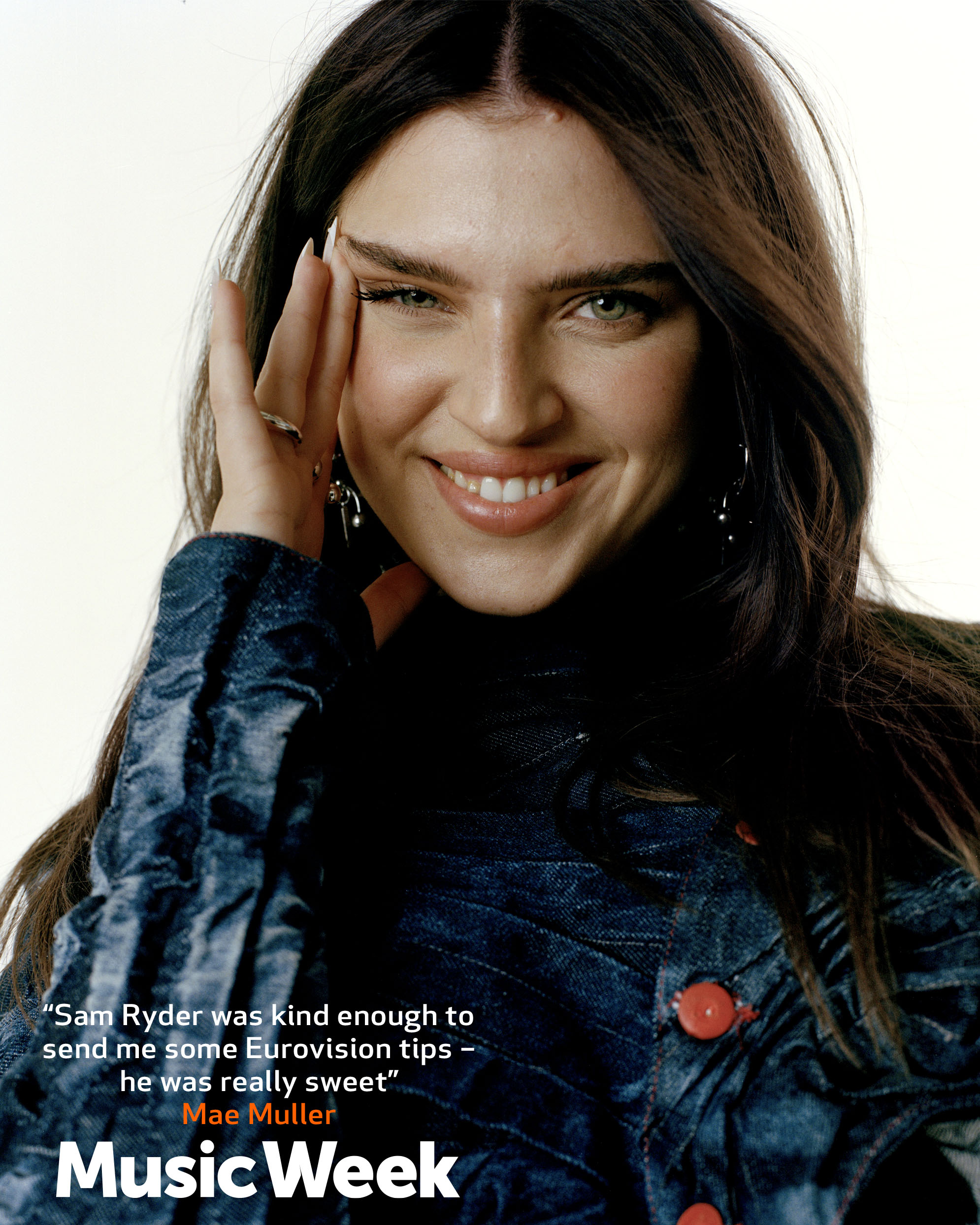
Buoyed by last year’s runners-up spot, there is a growing confidence that the UK has turned the corner on its miserable Eurovision record in the 21st century. But the elephant in the room remains: can Muller go one better than Ryder and actually win the thing?
“Ha!,” responds Charrington. “I'm very positive, but it's the taking part that counts, right? The fact that Mae is representing the UK in this competition will already elevate her profile and help her career post the event. If she wins, it will be a very proud moment. But do I think that if she comes second, fifth, or 10th, that will have a detrimental effect? No, I don't. I think whatever happens is positive for Mae. We will make the best of it and I know she will make the best of it, because that's the kind of person she is.”
“It’s an unpredictable show sometimes,” suggests Bloomfield. “But I think whatever happens, she’s going to make new fans. And whatever the outcome, this is just another stepping stone for Mae.”
To Mawson and Millett, the priority is to concentrate on the things within their control.
“It's just about doing a good job,” asserts Mawson. “We're proud of the song and I think we'll all be proud of Mae as a country. There are targets – we'd like to be Top 10, Top 5, or even better, who knows? But there are a lot of factors.”
“A high placing would be great, but does it platform Mae on to the next level of her career? Does it cement this as a viable platform for UK artists? Those factors are why we started this process in the first place,” offers Millett. “It’s not just about winning. Of course that would be great and we should try our hardest, but it's all those other things that are going to help make it feel like a success when we look back on it.”
And as for Muller? Well, given the UK’s Eurovision record, last year apart, has she also had to prepare herself for the possibility the results might not go her way?
“I'm purely looking at the positives," she says. "You get those anxiety dreams where ‘Nul Points’ flash across your eyes, but I don't see that happening because of the amount of work we're putting in. I see it going well, but as long as people enjoy the performance and feel empowered by it, that's a win in my eyes!”
